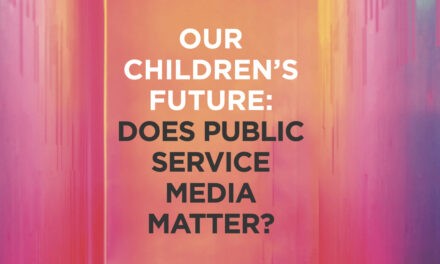Part Two: Whose Show?
[Part Two of “GENRE OUT OF THE BOX” delves further into the connection between genre and gender]
In Part One, I explored the genre hybridity of Miss Fisher’s Murder Mysteries, and began my inquiry into how the hybridity impacts on the construction of gender in the series, concluding with the question of what happens in the series to conventional fears expressed in purer versions of the detective genre about the power of women because of the amalgam of the detective genre and the fantasy genre. The answer in MFMM begins subtextually almost immediately, but breaks through the surface only in the middle of Season 2, after in “Death at the Wheel,” Detective Inspector Jack Robinson thinks heroine Phryne Fisher has been killed in a car accident and experiences unbearable anguish. When he learns that she is alive, he tells her he must cut her out of his life in order to continue to function. In the next episode, “The Blood of Juana the Mad,” on the detective story level, it becomes clear that Jack is hard pressed to solve a mystery without Phryne. (I venture to say that Phryne needs Jack just as much in order to close her cases too.) Their mutual cooperation makes them each more effective. Fears that women will gum up the detection process prove groundless on the level of narrative. Of course, this vocalizes the feminist edge of the series, but I’m not sure how much of a punch that would pack if it were not for the co-presence of the fantasy aspect of the series which takes the question to a deeper level through the visceral images of the male and female together.

With glamour, wit, and sometimes riotously bawdy humor, the series alters the existing fantasy images of masculinity on the playing field of James Bond and most other sleuths, by introducing a different, female set of genitals as emblems of power to complement the de rigeur phallic guns and cars of the old style detective. Guns and cars are present. Phryne has a gun; Jack’s is bigger. Jack has a car; Phryne’s is sleeker and more expensive. Phryne flies a plane; Jack rides a motorcycle. But the visual language of the series impresses us that Phryne’s power is not primarily her ability to play the phallic game.
The ever present fantasy spectacle of Phryne’s female body not only emphasizes her feminine presence but, in a very good humored way, at times points directly to her crotch. Phryne’s fantastically accoutred body is absurd as far as street action is concerned, but in this fantasy setting the balance between the expected phallic images of crime fiction and Phryne’s female anatomy has major emotional ramifications. Jack has a body that has not escaped the notice of the women in the audience, but male potency is always give a lot of play in mainstream fantasy. No surprises there. It is references to the Phryne’s potency in images that point toward female genitalia that alter the playing field. In “Queen of the Flowers,” Jack interrupts Phryne teaching some young girls judo. “I hope you’re not concealing a dangerous weapon under that skirt,” he says. “I’m concealing a lot of things,” says Phryne, “that’s what a lady does.” Later in the episode he informs Phryne that one of the girls is thought to be a pyromaniac. “Thank you,” she says disinclined to believe it. “I’ll keep a close eye on my flammables.” As she speaks, she rises and he is staring at her pubic area. There is a sublime comic moment in “Away With the Fairies” when Jack, crouched on the floor looking at a body, not knowing Phryne has just walked in turns and finds himself staring into her crotch. In “Murder Most Scandalous” she conducts our vision of her body upward, when she practically puts her breast in his mouth when she goes undercover as his escort in a gentleman’s club. Mother power.

Fictional detectives don’t regularly encounter or represent the female crotch or even attend much to the female body on other television shows that are more purely in the preserves of the genre. The women who are featured in the mystery shows in the Scully and Mulder tradition will at time create a sensation by appearing in noticeably feminine glamorous or sexy clothes. But Miss Fisher’s in-the-spotlight body is always front and center. So the question of whether a man can function in partnership with a woman is replaced in MFMM with the question of whether men and women can function without each other. It is Phryne who voices that reply, bringing very close to the surface what I would like to think is the underlying premise of the series, that to separate is death for both of them: “What we do best, us together you’d sacrifice that? If you did that Jack I would feel like it was you lying dead in that wreckage. Please can you think about that?” At this point they are both still thinking.
Phryne and Jack do resume their partnership, but the situation voiced in “Death at the Wheel,” is not resolved, only tabled. It remains, at least as I see it, the primary mystery of MFMM. What can become of women and men in the maelstrom of male and female desire if men do not automatically take control, and if women do not automatically direct their desire toward only one man. If the reactions that have been made manifest in the social media are to be believed, the detective stories in MFMM are not the big attraction for the growing audience. The audience has been galvanized by the two fantasy elements that represent the dilemma of Phryne and of Phryne and Jack. Phryne’s independence is conveyed on the fantasy level of the series by the stunning, prize winning costumes that rivet the audience’s attention to Phryne’s spectacularized body, about which many fans enthusiastically speak.

The issue of male and female desire is encapsulated by the problem of Jack and Phryne’s endlessly discussed (by fans) relationship, a relationship which propels us way beyond wondering “will they or won’t they?” toward a contemplation of what love means when old rules no longer apply.
Much feminist film criticism has noted that in Old Hollywood the heroine is initially presented as having a spectacular female body, but is transformed into something more drab when the female star falls in love and is “tamed” by the male star, a metaphor for the triumph of patriarchy over women’s energy. That doesn’t actually happen much these days and will not happen in MFMM. But the co-creators of the series, Cox and Eagger, are of two minds about what to do with Phryne and Jack. And on that question hangs the fate of the series’ hybridity, and what it will, finally express about men and women. In my e-mail correspondence with Cox, she told me she inclines to be “old fashioned” and wants them to be together though not necessarily in a domestic way, and that Eagger inclines toward a free standing Phryne. That was confirmed by my interview with Eagger. In her words, for her, this is not the Jack and Phryne show. It’s Phryne’s story. She’s quite passionate on the subject: “most of our default positions in storytelling are to give male characters the lead when it comes to action. It’s only natural that the default position in our culture is to give the male characters the lead when it comes to action given this is what we mostly witness in scripted drama. With Phryne I know I have to actively work against this in my own head. This is a fear vocalised by the network and some of the male writers of not emasculating the male characters in the scripts, in particular Jack. I get that, but we always have to watch that this “fear” of not “emasculating” our male characters is not to the detriment of Phryne. It would be like someone solving Sherlock’s or Cracker’s cases. These characters have help, but it’s their smarts / intuition that we watch the show for. There have been scripts that Deb has had to quickly rewrite or reposition, where Phryne has been relegated to the role of bystander, rather than protagonist. So while Phryne has her team of Dot, Bert & Cec [two witty and interesting working class Communists] and Jack, it is her show. It perplexes me that we have to consciously keep an eye on this.”

When I began writing this blog, I believed that the genre hybridity I see as the heart and soul of the series required the pairing of Jack and Phryne as the center of the series. I would have said that it would work against the many faceted genre mix to give Phryne center stage and relegate the mutual love between Jack and Phryne to the periphery. And here’s where it all gets very interesting for me. I have made a career of writing criticism that includes interviews with the creators of the film and television I am exploring. Being confronted with the bracing reality of what the creators are about has always kept me from getting stuck in my own fantasies. My dialogue with Cox is typical of this dynamic. She differs somewhat from me, but not in any radical way, keeping things real and lively. But my interview with Eagger takes the process to the next step. I admire Eagger very much for her feminist goals and delight in Phryne’s independence, but her impulse to make the series very clearly Phryne’s show at first seemed to make my genre analysis irrelevant. What happened next, I call a critical process out of the box.
I stand by my claims that it is important to recognize that the mixture of genres in the series is crucial to the expansive way the show expresses itself about women and women’s experience. But my very preliminary interviews with Cox and Eagger have caused me to think again about just what form that expression will take as they continue to develop MFMM. Perhaps it will not be as I was originally certain it should and would have to be. As unnerving as I find this thought, it is also bracing to be forced to see that the series’ hybridity might not have the implications I was certain of. My correspondence with Cox and Eagger have laid bare assumptions of mine that I hadn’t questioned. I had assumed that the show’s hybridity would free Jack and Phryne to be together against all odds because that’s what I want. But once hybridity opens up the path away from the convention, anything can happen. I am not at all prepared to say that Jack and Phryne’s relationship isn’t the engine of MFMM, but where I was once certain, I now wonder.
It is, I now see after my correspondence with Cox and Eagger, my desire and not my insight into the genre issues on MFMM that connects the hybridity to a certainty that Phryne and Jack must share center stage if the content is to work properly with the form. But it is not the critic’s desire that drives the creation of a series. My correspondence has highlighted this reality that I had forgotten in my enthusiasm. Whose desire is it? The creator’s? And if Cox and Eagger have opposing visions? Or could it be that a desire will emerge in time, after much play with the material, from the collective subconscious of Cox and Eagger that is more than just the sum of the different ways they are inclined right now? Or is the mover in fact the moved? Are mass media craftspeople driven by what they intuit is the desire of the audience? Eagger says that while Essie Davis (and ostensibly Eagger too) regards the Jack and Phryne relationship as very important and “often her [Essie Davis’s] touchstone for the emotional context or subtext for the episode,” both Eagger and Essie “shamelessly encourage Phryne to have as much sex as feasible. I enjoy her appetite and her subverting of the male gaze – it’s naughty, but nice.” Hmmm. Eagger has further acknowledged that this is tricky in terms of Jack and Phryne’s relationship. Tricky indeed. I would say that at first Phryne’s sexual freedom might define her liberation, but, as she gets closer to acknowledging the mutual love she and Jack share, if her unbridled satisfaction of lust goes on for too long, I am curious about whether the heart will go out of the series. I’m also curious about what Eagger thinks makes Phryne’s free-wheeling sex despite her deep feeling for Jack a subversion of the male gaze. Perhaps future conversations will clarify this.
Cox and Eagger have each separately told me that they value their conversations with me because the hectic pace of making the show leaves little time to deliberate and just the questions I sent them opened up some opportunities for them to take a breath and think. A high compliment. But also a sign of a rare openness that makes MFMM the fresh, unique show it is. I’ve worked in American television and I recognize the truth of what they say, but their interest in finding a time and place to explore questions is unusual in that industry in my experience. Cox and Eagger humble me. I spoke above of what might not be conscious in Cox and Eagger about what they have created, and I now speak of what was not conscious about my critical approach to their work. I have made an important discovery as I cast off my uninspected certainties about a show that is still in a vital stage of development.
I find it hard to believe that I can ever enjoy what I imagine must happen to both Phryne and Jack and their heart connection if she continues “to have as much sex as feasible,” with many temporary objects of desire. I place my faith in storytellers to reveal to me what I never imagined before, but I now see why hybridity might alarm some. My predisposition toward breaking boundaries and innovation had blinded me to the potential oppositions to my desires in the unknown possibilities for women and men in a hybrid fantasy that breaks up old conventions. When the playing field is wide open, all bets are off. I confess to both apprehension and excitement.
In summing up her comments, Eagger wrote: “Watch this space.” Yup.
Martha P. Nochimson’s 26 year career as a University Professor of film and literature is only part of her story. In addition to the pleasure she has taken at being in the classroom at Mercy College and the Tisch School of the Arts at New York University, she has worked as an editor for Cineaste magazine, written for American television, and has had the privilege of being in long running conversations with both David Lynch (25 years and counting) and David Chase (ten years and counting). She has published six books and is about to start work on Inner Tube: Television Beyond Formula for the University of Texas Press.





